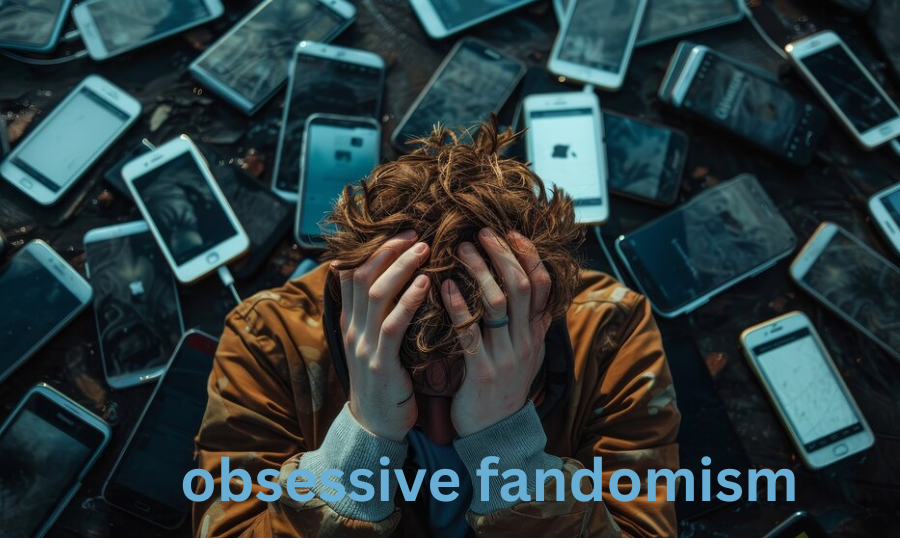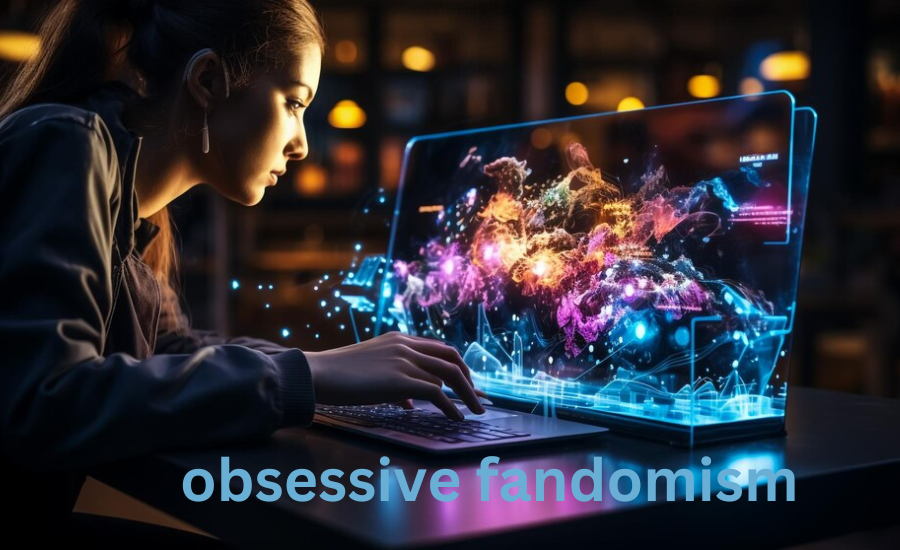In our increasingly interconnected world, where social media and online communities play a central role in our daily lives, fandom has evolved significantly. Fans have always been a driving force in the entertainment industry, but the emergence of obsessive fandom has elevated fan engagement to unprecedented levels. This phenomenon is characterized by an intense, sometimes all-consuming dedication to a particular subject, be it a celebrity, TV show, movie, book series, or other form of popular culture. Obsessive fandoms is a double-edged sword; it fosters a sense of community and shared passion among fans but can also have deep impacts on individuals, communities, and even the entertainment industry itself.
The Impact on Individuals and the Entertainment Industry

The effects of obsessive fandomism are both widespread and profound. On the positive side, it brings people together, allowing fans to connect over shared interests and create vibrant communities. However, it can also lead to extreme behavior, where fans become overly consumed by their passion, sometimes to the detriment of their personal lives and mental health. In the entertainment industry, the influence of obsessive fandomism is unmistakable. Fan engagement can make or break a project, with studios and creators often tailoring content to cater to dedicated fanbases. While this can lead to greater fan satisfaction and loyalty, it can also result in creative constraints and pressure to conform to fan expectations. Understanding the dynamics of obsessive fandom is crucial for recognizing how it shapes cultural trends and the future of entertainment.
Understanding Obsessive Fandomism
Obsessive fandomism represents an extreme level of fan engagement, where individuals develop a deep emotional connection and unrelenting dedication to a specific subject or interest. Unlike casual fans, who simply enjoy or appreciate something, obsessive fans immerse themselves completely in their chosen fandom. This often involves spending considerable amounts of time, energy, and even money on their interest, whether it’s a celebrity, TV show, book series, or other cultural phenomenon. For these fans, their passion transcends mere enjoyment and becomes a core part of who they are, influencing their thoughts, conversations, and daily activities.
Beyond Mere Admiration
The intensity of obsessive fandomism can lead fans to go to great lengths to express their devotion. They might attend numerous events, collect rare memorabilia, engage in extensive online discussions, and even create content, such as fan fiction or artwork, related to their interest. This level of engagement often blurs the line between admiration and obsession, as fans become deeply intertwined with their chosen subject. In many cases, their identity becomes so closely linked to their fandom that it can shape their social interactions and personal relationships, highlighting how powerful and consuming this type of fandom can be.
What Defines Obsessive Fandomism
Intense Passion
Obsessive fans display a profound and unwavering passion for their chosen subject, whether it be a celebrity, a TV show, or a book series. This passion is not just a passing interest; it often translates into an extensive and detailed knowledge of their favorite topic. Obsessive fans know the intricacies of the plotlines, the background of the characters, or the personal histories of their favorite celebrities. Their dedication is evident through frequent discussions, both online and offline, where they enthusiastically share their insights and theories with others who share their interests. This deep emotional connection fuels their commitment and makes their fandom an integral part of their lives.
Devotion of Time and Resources
The dedication of obsessive fans goes beyond mere enthusiasm—they are willing to invest significant amounts of time and money into their fandom. They attend fan conventions, movie premieres, and live events to connect more closely with the subject of their admiration. Collecting merchandise, whether it’s limited-edition items, signed memorabilia, or exclusive content, becomes a hobby in itself. Moreover, these fans often create their own content, such as fan fiction, artwork, or videos, further immersing themselves in their beloved fandom. Their commitment is a testament to how much they value their chosen interest and the lengths they are willing to go to maintain that connection.
Community Engagement
One of the defining features of obsessive fandomism is the strong sense of community that fans build around their shared interests. Online forums, social media groups, and fan clubs become gathering places where fans can come together to celebrate their passion. These communities offer a supportive environment for fans to connect, share experiences, and collaborate on projects. Whether it’s organizing fan meetups, participating in fan art competitions, or working together on fan-made films, these activities strengthen the bond between fans and create a sense of belonging. The camaraderie found in these communities often extends beyond the fandom itself, fostering friendships that can last a lifetime.
Emotional Attachment
For many obsessive fans, their connection to their chosen subject goes far beyond simple enjoyment. They develop strong emotional attachments that can significantly impact their emotional well-being. Positive developments, such as a new season of a TV show or the release of a new book, can bring immense joy and excitement. Conversely, negative news, such as a beloved character’s death or a show’s cancellation, can lead to disappointment and distress. This deep emotional involvement is a double-edged sword, bringing fans closer to the stories and people they love, but also making them vulnerable to the highs and lows that come with being deeply invested.
Identification with the Subject
For obsessive fans, their fandom often becomes a key part of their personal identity. They don’t just enjoy their favorite shows, books, or celebrities; they define themselves by them. This identification can manifest in various ways, such as wearing themed clothing, adopting phrases and symbols from the fandom, or even mimicking the behaviors and styles of their favorite characters or celebrities. Their fandom influences their choices, from their social interactions to how they spend their leisure time. This deep connection underscores how fandom can transcend being just a hobby and become a significant part of an individual’s self-concept, influencing their worldview and lifestyle.
Here are some different types of obsessive fandomism

Obsessive fandomism can take on several forms, including:
- Celebrity Obsession: This form involves fans who develop strong emotional connections with their favorite celebrities. These fans often closely follow the personal and professional lives of these public figures, attend events like concerts or meet-and-greets, and actively participate in fan clubs or social media discussions centered around their idols.
- Media Franchise Obsession: Fans who are deeply invested in specific TV shows, movies, or book series fall under this category. They consume everything related to the franchise, from watching spin-offs and reading related novels to purchasing branded merchandise. Their enthusiasm often leads them to participate in fan forums, create fan fiction, or attend conventions.
- Sports Obsession: This form of fandom is characterized by intense support for favorite sports teams or athletes. Sports enthusiasts often attend games, track player statistics, watch highlights, and engage in heated discussions with other fans about team performance and strategies. Their loyalty to their teams can be unwavering, even during losing seasons.
- Music Obsession: Fans who show an unrelenting passion for specific musicians or bands fall into this category. They are known for attending multiple concerts, purchasing every album or piece of merchandise, and actively engaging with fellow fans in online communities. Their devotion often extends to following their favorite artists on tours and eagerly anticipating new music releases.
Effects of Obsessive Fandomism
Positive Impacts:
- Community Building: Fandoms foster a strong sense of community and belonging, uniting people over shared passions and interests. These communities often provide a space for fans to connect, share experiences, and celebrate together, creating lasting friendships and support networks.
- Creative Expression: Many fans use their fandoms as a springboard for creative endeavors, such as creating fan art, writing fan fiction, or producing fan videos. This creative outlet allows fans to explore their talents and express their love for their favorite subjects.
- Support Networks: Fandom communities often act as informal support networks, offering emotional and social support to members. Fans can find camaraderie, empathy, and encouragement from others who understand their interests and struggles, helping them navigate personal challenges.
- Cultural Influence: Fans play a crucial role in shaping cultural trends and the success of media franchises. Their enthusiasm can propel shows, movies, and artists to greater popularity, influencing the broader entertainment landscape and bringing niche interests into the mainstream.
Negative Impacts:
- Unhealthy Obsession: While passion can be positive, some fans may develop an unhealthy obsession, leading to neglect of personal responsibilities, relationships, and self-care. This excessive focus can disrupt their daily lives and well-being.
- Online Toxicity: Fandom communities, especially online, can sometimes become toxic environments. Disagreements over opinions or intense emotions can lead to conflicts, harassment, and negative behaviors, which can harm the mental health of those involved.
- Financial Strain: The desire to collect merchandise, attend events, or purchase exclusive content can lead to significant financial strain for fans. Some individuals may spend beyond their means, prioritizing their fandom over essential expenses.
- Emotional Distress: Fans may experience emotional distress when their favorite subject does not meet their expectations or when faced with conflicts within the fan community. Changes in the storyline, celebrity controversies, or fandom disputes can lead to disappointment, anger, or sadness.
Obsessive Fandomism in Pop Culture
Fandoms and Social Movements
- Activism and Advocacy: Fandoms have become powerful advocates for social change, harnessing their collective energy to address pressing issues. By organizing fundraising events, awareness campaigns, and support initiatives, fans are making significant contributions to charitable causes and social justice efforts.
- Diversity and Inclusion: Fans are increasingly driving the conversation around diversity and inclusion in media. They actively campaign for more accurate and diverse representation in entertainment, pushing for equitable portrayals of various communities and influencing the industry to reflect a broader spectrum of experiences.
The Power of Fan Campaigns
- Revival Campaigns: The dedication of fandoms has proven to be a force for reviving beloved but canceled shows and films. Fans’ passionate petitions and organized efforts have successfully brought back content that networks and studios had previously abandoned, highlighting their influence on the industry.
- Award Recognition: Fans often mobilize to ensure their favorite actors, films, and TV shows receive the accolades they deserve. By rallying votes and promoting their favorites, fan communities have played a pivotal role in shaping award outcomes and celebrating exceptional work in the entertainment industry.
The Evolution of Fandom: A Historical Overview
- Early Fandom Roots
Fandom has deep roots that extend well before the digital era, with its origins in literature, sports, and theater. Literary societies were among the first fan groups, where people gathered to discuss and celebrate their favorite authors and novels. In the realm of sports, passionate fans showed their support for teams and athletes, creating a vibrant culture of enthusiasm and loyalty. Similarly, theater fans formed communities around popular plays and performers, actively participating in discussions and attending performances to support their interests. - Technological Transformation
The advent of technology and the internet has revolutionized the way fandom operates, making it a global phenomenon. Online communities emerged as a crucial aspect of modern fandom, connecting enthusiasts from around the world and facilitating the sharing of passions. The rise of social media platforms has further transformed fan engagement, allowing fans to interact directly with celebrities and creators, and providing a space for real-time discussions and updates. - The Era of Fan Conventions
Fan conventions have become significant cultural events, serving as gathering places for fans to immerse themselves in their interests. These conventions offer opportunities for fans to meet creators, participate in themed activities, and celebrate their favorite media and franchises. They play a crucial role in fostering community and deepening fan engagement, creating spaces where shared interests can be explored in person. - The Global Impact of Fandom
Today, fandom has become a global force, influencing not only the entertainment industry but also broader cultural trends. The collective voice of fans can shape industry decisions, from reviving canceled shows to campaigning for award recognition. This widespread impact underscores the power of fandom to drive cultural change and highlight the significance of fan communities in shaping the modern media landscape.
Trends and Predictions for Obsessive Fandomism

As technology advances, the world of obsessive fandomism is poised to evolve in exciting ways:
- Virtual Reality Experiences: The rise of virtual reality (VR) promises to create immersive fan experiences that allow enthusiasts to interact with their favorite content in new and groundbreaking ways. Fans could explore virtual worlds based on their beloved franchises or attend virtual events, further deepening their engagement.
- Global Fan Communities: The trend of globalization within fandoms is set to grow, with fans from diverse cultures and backgrounds connecting and collaborating. This expansion will foster a richer, more inclusive fan culture, where shared interests bridge geographical and cultural divides.
- Increased Fan Influence: Fans are expected to wield more influence over content creation and industry decisions. Their feedback and collective voice will likely play a crucial role in shaping the future of entertainment, driving changes in how media is produced and consumed.
- Navigating Challenges: While these developments offer exciting opportunities, they also come with challenges. Fans will need to balance their dedication with personal and professional responsibilities. Addressing online toxicity and promoting healthy engagement within fan communities will be essential to ensure that fandom remains a positive and inclusive experience for all involved.
FAQS
1. What is obsessive fandomism?
Obsessive fandomism refers to an extreme level of fan engagement where individuals exhibit intense dedication and emotional attachment to a specific subject, such as a celebrity, TV show, movie, or book series. This level of passion often involves a significant investment of time, resources, and emotional energy, making the fandom a central aspect of their identity.
2. How does obsessive fandomism impact individuals?
On the positive side, obsessive fandomism can create a sense of community, encourage creative expression, and provide support networks. However, it can also lead to negative effects such as unhealthy obsession, emotional distress, financial strain, and online toxicity.
3. What are some examples of obsessive fandomism?
Obsessive fandomism can manifest in various forms, including celebrity obsession, media franchise obsession, sports fandom, and music obsession. Each type involves different levels of engagement and dedication specific to the area of interest.
4. How has technology changed the landscape of fandom?
Technology has significantly transformed fandom by enabling global connectivity through online communities and social media. Virtual reality and fan conventions have also enhanced fan experiences, allowing for more immersive and interactive engagements with their interests.
5. What role do fandoms play in social movements?
Fandoms increasingly intersect with social movements by advocating for social issues, promoting diversity and inclusion, and supporting charitable causes. Fans use their collective voice and energy to drive social change and raise awareness on various important topics.
6. How can obsessive fandomism be managed effectively?
To manage obsessive fandoms effectively, individuals need to balance their passion with personal and professional responsibilities. Encouraging healthy engagement, addressing online toxicity, and maintaining financial and emotional well-being are key factors in sustaining a positive fan experience.
Conclusion
Obsessive fandomism represents a powerful and evolving aspect of modern culture, shaped by our increasingly digital and interconnected world. While it fosters strong communities and offers creative outlets, it also presents challenges that must be navigated with care. Understanding the dynamics of obsessive fandomism—its impacts on individuals and the entertainment industry, its various forms, and its role in social movements—provides valuable insights into its influence on contemporary media and culture. As technology continues to advance, the evolution of fandom will bring new opportunities and challenges, underscoring the need for a balanced approach to ensure that fan engagement remains positive and enriching.
Stay in touch for more updates and alerts: DiscoverTribune!




